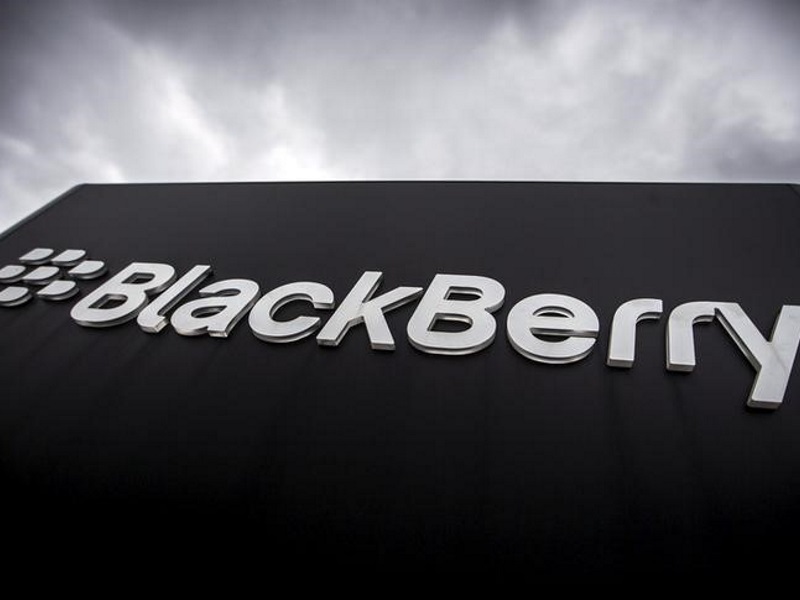- Home
- Mobiles
- Mobiles News
- Wireless Executive Gets Sentenced to Prison After BlackBerry Leak
Wireless Executive Gets Sentenced to Prison After BlackBerry Leak

James Dunham, 60, was also ordered by U.S. District Judge Douglas Woodlock in Boston to serve five months of home confinement following his prison term and to pay $76,000, after pleading guilty in June to wire fraud.
The sentence was confirmed by the office of U.S. Attorney Carmen Ortiz in Boston and came in the first case spilling out of its investigations into the black market for secret corporate information that exists outside of insider trading.
"We will not hesitate to prosecute individuals who buy and sell confidential corporate information, regardless of whether there is a provable link to insider trading," Ortiz said.
Dunham, a resident of Glastonbury, Connecticut, was the former chief operating officer of Wireless Zone, which operates over 400 franchise Verizon Wireless outlets.
According to prosecutors and court papers, Dunham entered a secret consulting relationship with an analyst at Boston-based financial firm Detwiler Fenton in 2010 to provide wireless industry information in exchange for $2,000 per month.
Prosecutors said the information gave the analyst "real time" insight into what happened at the franchiser's stores and was used for research reports sent to investors.
The scheme came to light in April 2013 after Dunham provided information about a company's new smartphone, prosecutors said.
While not identified in court papers, the manufacturer matched the description of BlackBerry, whose launch of the Z10 smartphone was considered critical to the troubled company.
Prosecutors said after Dunham told the analyst, Jeff Johnston, that returns of the phone exceeded sales at some of the franchiser's stores, Detwiler Fenton issued a report based on that information.
BlackBerry's stock price subsequently fell 7 percent. The company disputed the report as "false" and urged regulators to investigate.
Prosecutors said the information was accurate so far as the franchiser's stores went, though may not have been with respect to overall sales and returns.
Dunham's lawyer declined comment. Johnston, who was not charged, did not respond to requests for comment.
Ortiz's office has continued investigating similar conduct since Dunham's February arrest.
In July, Brian Bennett, an employee at proxy adviser Institutional Shareholder Services Inc pleaded guilty to divulging confidential corporate voting details to a proxy solicitation firm.
The case is U.S. v. Dunham, U.S. District Court, District of Massachusetts, No. 15-cr-10110.
© Thomson Reuters 2015
For the latest tech news and reviews, follow Gadgets 360 on X, Facebook, WhatsApp, Threads and Google News. For the latest videos on gadgets and tech, subscribe to our YouTube channel. If you want to know everything about top influencers, follow our in-house Who'sThat360 on Instagram and YouTube.
Related Stories
- AI
- iPhone 16 Leaks
- Apple Vision Pro
- Oneplus 12
- iPhone 14
- Apple iPhone 15
- OnePlus Nord CE 3 Lite 5G
- iPhone 13
- Xiaomi 14 Pro
- Oppo Find N3
- Tecno Spark Go (2023)
- Realme V30
- Best Phones Under 25000
- Samsung Galaxy S24 Series
- Cryptocurrency
- iQoo 12
- Samsung Galaxy S24 Ultra
- Giottus
- Samsung Galaxy Z Flip 5
- Apple 'Scary Fast'
- Housefull 5
- GoPro Hero 12 Black Review
- Invincible Season 2
- JioGlass
- HD Ready TV
- Laptop Under 50000
- Smartwatch Under 10000
- Latest Mobile Phones
- Compare Phones
- iQOO Z9x
- iQOO Z9
- HMD Pulse
- HMD Pulse+
- HMD Pulse Pro
- Realme Narzo 70x 5G
- Realme Narzo 70 5G
- Samsung Galaxy C55
- Lenovo IdeaPad Pro 5i
- Asus ZenBook Duo 2024 (UX8406)
- Realme Pad 2 Wi-Fi
- Redmi Pad Pro
- boAt Storm Call 3
- Lava ProWatch Zn
- Samsung Samsung Neo QLED 8K Smart TV QN800D
- Samsung Neo QLED 4K Smart TV (QN90D)
- Sony PlayStation 5 Slim Digital Edition
- Sony PlayStation 5 Slim
- Lloyd 1.5 Ton 3 Star Inverter Split AC (GLS18I3FOSEW)
- Haier 1.5 Ton 3 Star Triple Inverter Split AC (HSU18K-PYSS3BN-INV)
















